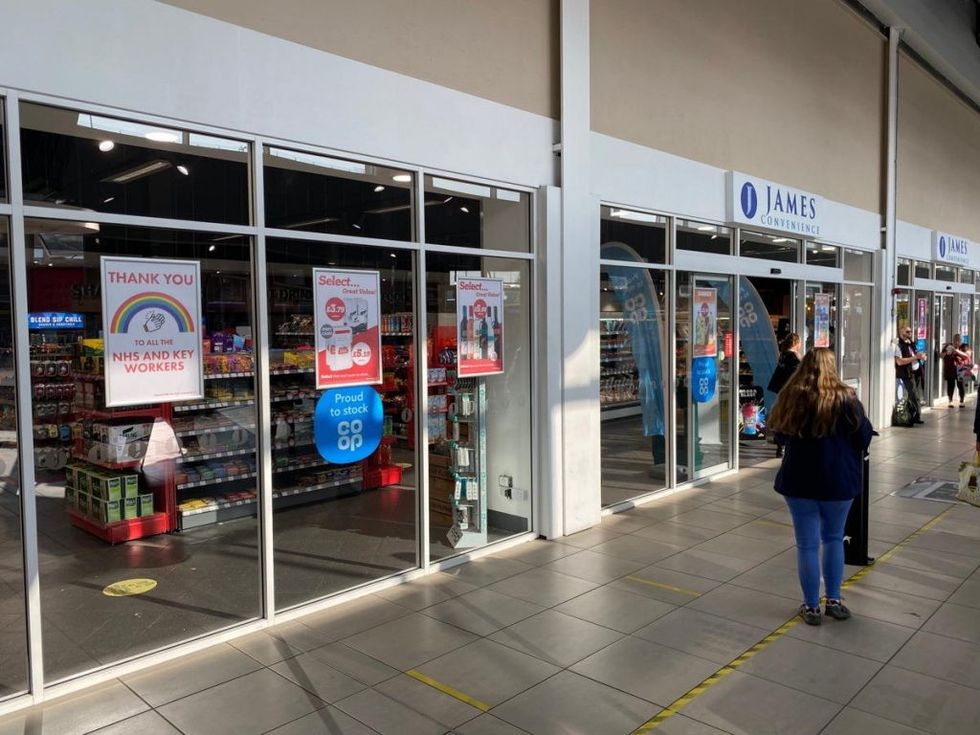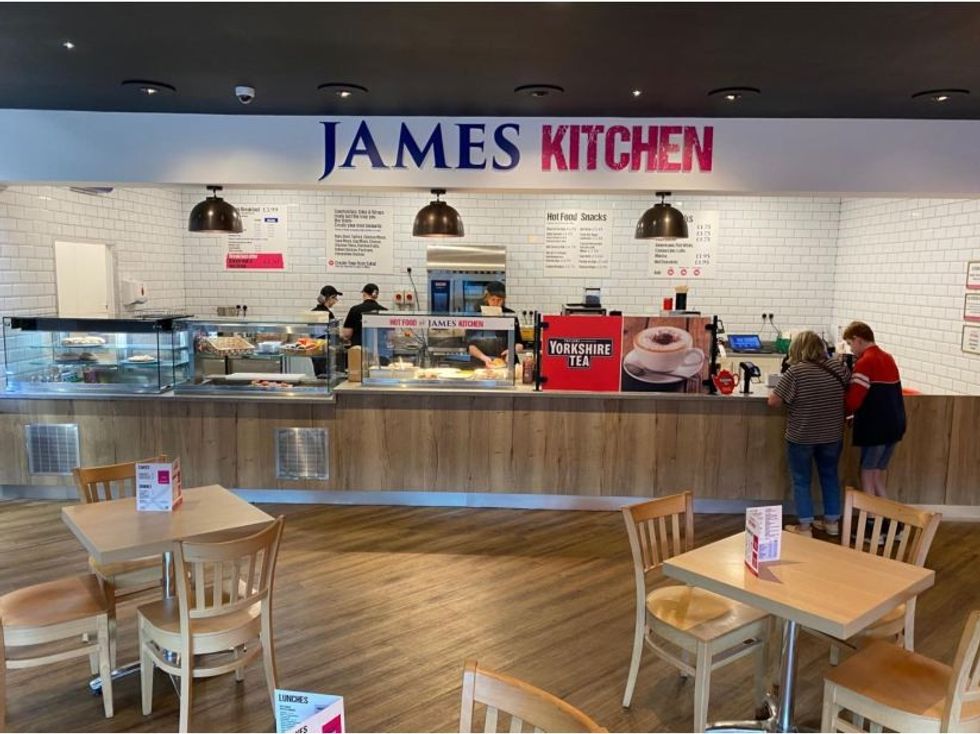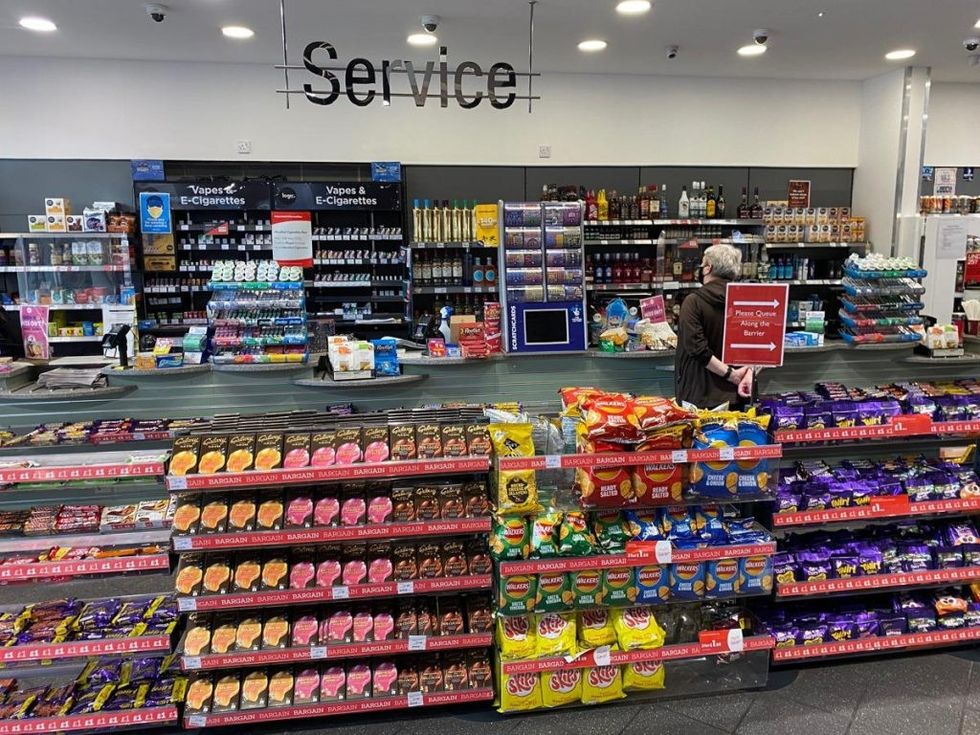James Convenience Store, located within Derby bus terminal, has been named the joint winner in the Responsible Retailer of the Year category at the 2021 Asian Trader Awards. The store is run by Jonathan James, whose James Retail Group operates around 45 convenience and newsagent stores across the central belt of the country.
Obviously, team training is key to ensure that they keep up to date with any legislation.
“We've got a manager who constantly just looks at compliance right across all of our stores, and to keep themselves up to speed with latest government legislation,” Jonathan says. “Plus, we've got a full-time trainer who works throughout all our stores, making sure that our team members are up to speed on compliance training, so it's a team effort.”
Jonathan, who is the current Chair of the ACS Independent Retailer Board, also works with the trade body’s Assured Advice scheme, which provides accredited standards for in-store procedures.
They have a zero tolerance policy regarding violence or intimidation towards the staff. With most of their stores being in local neighbourhood areas, the team members will know the local customers, and that greatly helps defuse tense situations. Yet, they have seen instances of abuse and violence during the Covid-19 pandemic, when tempers often flared with mask rules, limits on products and social-distancing measures.
“We've had that within the store. One of the things we invested in was headsets, so that our staff who are on shifts can very easily talk to one another wherever they are in the store. And if there's known troublemakers, we can very quickly rally the team to that area to assist in dealing with that person,” he says, explaining the measures they have taken.
“We work closely with the local police who work with the local bus station security to ensure that's kept to a minimum.”

The Derby store is an exemplar of his excellent adherence to legal and regulatory guidelines, as he designed the store in compliance with the upcoming HFSS regulations during a refit last year. And, he also worked closely with suppliers like Country Choice and local authorities to make sure that the store is compliant with “Natasha’s Law”, which mandated changes to the allergen labeling of pre-packed-for-direct-sale foods from October last year.
The refit itself has been an interesting story, as the key focus was very much to bring into play food to go.
Of course, food to go is the perfect service situated within a bus station where “feet on the street” are in abundance. But, bear in mind that they went for the refit after the pandemic changed all that with lockdowns and work from home.
“We turned this to a positive and took the opportunity to look hard at what we sell and use the early Covid days to refine and shape our offer,” he says.
Responsible re-fit
“We knew that once everything opened up again, the government focus was very much on pushing people towards public transport more. There's only an announcement (recently) by the government about how they were going to invest heavily in low carbon neutral buses, zero emission buses. And because the place was quiet, it made sense to minimise disruption to refit it at that time,” says James.
So, instead of reducing the offer in line with shrinking footfall, they have invested in creating a food-to-go proposition that inspires, excites and provides something that little bit different.
“The refit was a significant one. We spent money on it, knowing that once everything did open back up again, it would be a big benefit to the store to have a good food-to-go offer and give a really good point of difference to the store to the surrounding area, which is exactly what has happened,” he says.
The store was relaunched in August last year, with a food-to-go wall featuring Costa, fwip, f’real, Rollover, Rustlers, Tango Ice Blast machines. They now attract custom as a destination venue, from local businesses and the local college – where students now increasingly divert to the station to pick up their coffees, breakfast, their snacks, and food to go on their way to college – not just catching travellers through the bus station.
“We've gone from probably about 10 per cent of the store being food to go to around about 30 per cent of the store now being food to go. It's performed exactly as we'd hoped it would,” Jonathan says, adding that they also see the constant growth in public transport figures being reflected in the store’s sales.
The Derby store has an excellent fresh and chilled range, and they make their own sandwiches in store. They worked with a local celebrity on their menu, bringing in new lines such as Derbyshire Oatcakes with accompaniments such as bacon and tomato, or mushrooms and cheese.

The highlight, however, is the cafeteria. “There's a really lovely cafeteria that we’ve got, with seating in there for our customers. And now that's been allowed to open again witha really good meal offer and a good menu with healthy options. So it's basically everything you'd expect in a modern convenience store,” he adds.
All these innovations are targeted at the young customer who wants something on the go. “They drive additional footfall which is needed due to the impact of lockdown, and they enable us to adapt in an ever-changing young customer base looking for the new things,” he explains.
Local provenance has become a big back-story for them, and Jonathan is all praise for their invaluable support. At the Derby store, they buy fresh, home-made cakes and make all their sandwiches (to go) on site using fillings sourced from local partners and artisan producers, which has quickly gained a reputation for excellence.
“I would mention our local supplier, Luke Evans Bakery, who work with us on making fresh cakes and bread which is delivered every morning. Great service, real passion, and fabulous products which really support our business,” he says.
And, this is the story across the whole group. “Wherever we can source locally, we will source locally. We're probably dealing with about 30 different bakeries,” he says, and there’s a certain enthusiasm when he adds: “We pride ourselves in supporting local suppliers. That's an absolutely key focus of ours. I mean, we advertise that fact; so many local suppliers that we've worked with for many, many years proudly say so. Yes, whatever we can source locally, we will.”
He adds that the support enjoyed by local stores is in fact the support to local businesses, and for stores, there’s a big learning curve there. “Our local suppliers, they kicked in where we were perhaps having supply issues on a national basis. The local suppliers pick that up. So, there's a big shift in people wanting to see local supplies,” he says.
From farm to farm shop, to retailer
Perhaps, his family background in farming is an inspiration behind the support to local suppliers. Jonathan’s first venture in retail was a farm shop, as they looked to diversify the family farm to make it more viable, “because farming is a very difficult industry to be in.”
“So myself and my father, we converted one of our little sheds on the farm into a small farm shop. And we started growing and selling our own produce, and fine produce also from the London wholesale markets. That was sort of the start of my retail life,” he recollects.
He has been involved in the forecourt and convenience sector since January 2000, when he, along with his wife Rebecca, took over the family petrol station in Cambridgeshire.
“We've sort of evolved the business quite a lot. We've still got four petrol stations, and also we own a supermarket. We rent all of those out. That's one side of the business,” he says.
The other side, of course, is the James Convenience Retail, formed in 2015 with the acquisition of the former GT Retail business. The Derby store was part of that cohort.
Subsequently in March 2016 they acquired First Stop News Limited– the holding company of Rippleglen, trading stores as Supernews and Maynews across the UK– creating one of the largest operators of Home News Delivery in the country and a strong regional force in the independent convenience sector.
The business, with stores ranging anywhere from 400 to 4000 sqft in size, is managed from the head office in Barlborough, North Derbyshire. They employ around about 300 staff, with all store workers being recruited locally.

So, it’s with that bird’s-eye view that James suggests convenience stores need to be a destination store in the community.
“As high streets are evolving, we've got to be very much a one-stop shop for everybody. So again, just sort of picking up the slack of what's left behind from the pandemic,” he explains.
“For example, is there a growth in buying local fresh meat, if the local butcher has struggled or if a local greengrocer has closed down, can you improve your range of fresh fruit and vegetables? It's making sure you give people so many different reasons to visit your store.”
Another crucial point is to understand the area and consumers. “Don't try and second guess your customers. Ask your customers,” he suggests, adding that that’s how they went in for the refit of the Derby store.
“We were getting constantly asked for an improved food-to-go offer within that store. So we've now given them: they've got a grab-and-go solution, they've got a sit-down solution, they got products made in store,” he explains.
“I think my key advice is, is ask the customers what they want and do everything to deliver it. There's no point in giving a whole range to something that your customers aren't going to need.”
This assumes much larger significance now, as he anticipates strong competition in the convenience retail with the pandemic-induced change in shopping habits sure to bring new operators into the sector.
“I say this regularly that we're extremely fortunate that the convenience sector is part of the retail sector that everybody wants to be in. But the challenge for the convenience sector is that it's the retail sector that everybody wants to be in,” he cautions.
“Everybody now is realising that the pandemic has really changed the consumer to shop locally. So that I think is the biggest challenge we have. It's always been a very competitive area–and now going to be an extremely competitive area to be in.”
He also predicts an “unknown challenge” from the dark stores and therapid delivery apps. “That is the unknown challenge and I think they're a far bigger threat to convenience stores than people realise,” he warns.
There won’t be a one-size-fits-all solution; and his approach to ward off these challenges is to look at what they have got in the area and where there are strengths and weaknesses. “And we play towards that. And we're good at doing that,” Jonathansigns off, exuding confidence.


